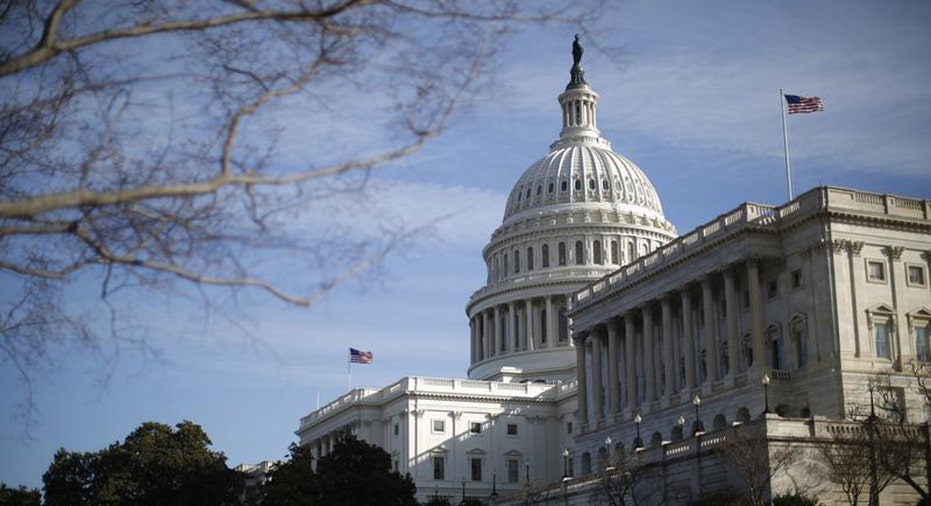State, local deductions could still stymie tax reforms and almost derailed the budget

Republican House leadership may have thought passing their budget was going to be an easy win, but after the cancellation of a crucial meeting on Wednesday, the vote to pave the way for tax reform turned out to be a challenge.
As Republicans from the House of Representatives prepared for a meeting on Wednesday night that was expected to lead to a compromise on the possible elimination of the state and local tax deduction as part of the final tax reform bill, GOP leadership unexpectedly chose to cancel the summit after it was determined they did not have their proposal prepared to appease lawmakers whose constituents would be most impacted by the loss of the deduction, FOX Business has learned.
Rep. Thomas MacArthur (R-NJ), the congressman who said on Wednesday to FOX Business that he expected a deal to be made at the meeting, explained in a subsequent interview on Thursday that before he went to Capitol Hill to gather with his colleagues from New York, New Jersey and California, he decided to have a conversation with House Ways and Mean's Committee Chairman Kevin Brady (R-TX) just to make sure that they were on the cusp of coming to an agreement.
When MacArthur met with Brady, however, it was clear a final solution was not on the table. "I met with Brady yesterday (Wednesday) and I asked him if we would have a proposal and he said 'I don’t think the committee will have the numbers yet.' I said then 'why do we have to do this meeting?,' he said. "My first reaction when he said this was 'Kevin we’ve been talking about this for 11 weeks.’ My second reaction was 'don’t waste our time for the meeting if you don’t have anything to suggest.' That’s when they decided to call off the meeting. Consequentially I then voted against the budget," MacArthur added.
The deal was supposed to be an incentive for those congressmen who were undecided on whether to support the House budget reconciliation bill, which was called for a vote on Thursday. It eventually did pass but only by the slimmest of margins, 216 yes votes to 212 nay votes. The majority of the 20 Republican no votes came from the House members that are most concerned with losing the deduction, seven lawmakers from New York and four from New Jersey, and many of those representatives were expected to attend Wednesday's meeting. The other two leaders who were expected to be part of the gathering was Rep. Steve Scalise (R-LA) and Rep. Mike McCarthy (R-CA)
Instead, the group met after the budget vote on Thursday and concluded, again, with no agreement on how to handle the tax break.
A spokeswoman for the House Ways and Means Committee declined to comment on MacArthur's conversation with the chairman and referred FOX Business to his comments after he met with those same lawmakers on Thursday who were concerned about potential loss of SALT and voted against the budget.
"Our lawmakers in these high tax states need to ensure that their families are better off from tax reform than before. We are working very seriously with them to find good solutions," Brady told reporters during a press gaggle.
A spokesman for Scalise did not return calls for comment. A spokesman for McCarthy did not return emails for comment.
The state and local tax deduction (SALT) affects about 30% of all taxpayers, mainly in states such as New York, New Jersey, California, Connecticut, Virginia and Pennsylvania that impose significant state income taxes. The GOP Congress is dominated by lawmakers from southern and western states that don’t impose such levies. They have argued for ditching the SALT deduction from the tax code on the grounds that it unfairly benefits taxpayers from just a handful of states and deprives the federal government of trillions in revenue.
Indeed, the Trump administration has called on the elimination of the SALT deduction that would produce close to $1.3 trillion in revenues over 10 years and help pay slashing taxes for individuals and take the corporate tax rate down from its current level of 35% to 20%.
But lawmakers from these high-tax states argue that the federal government receives a disproportionate share of tax revenues from states like New York and California, where a large percentage of wealthy people reside, thus the tax break provides some degree of fairness in the government’s revenue collection efforts.
The ongoing debate on a final solution to the proposed tax break elimination may be coming sooner than expected. A compromise that's starting to gain steam is to eliminate the deduction and replace it with a type of property tax credit, according to Rep. Tom Reed (R-NY), who voted yes for the budget and spoke to FOX Business on Thursday.
"What has gained momentum is the one I’ve liked, and that’s a targeted property credit to the working folks. Those making anywhere up to $400,000 or as low as $200,000 would receive a credit that would go dollar for dollar to your tax itemized tax bill. This relief will allow the middle class to keep their money in their pockets on a dollar for dollar basis," Reed, said
Reed, a ranking member on the House Ways and Means Committee, also claimed that this was going to be the proposition given to his colleagues at the meeting on Wednesday, but he, along with GOP leadership, could not determine the final details and were unable to present their compromise.
The House is getting ready to unveil their tax plan by November 1 and they can't afford the same close vote like they had with the budget. Both Reed and MacArthur noted that members will be working throughout the weekend and into next week to try to find a solution to what could be a potential stumbling block come the time vote on reforming the nations tax code.



















